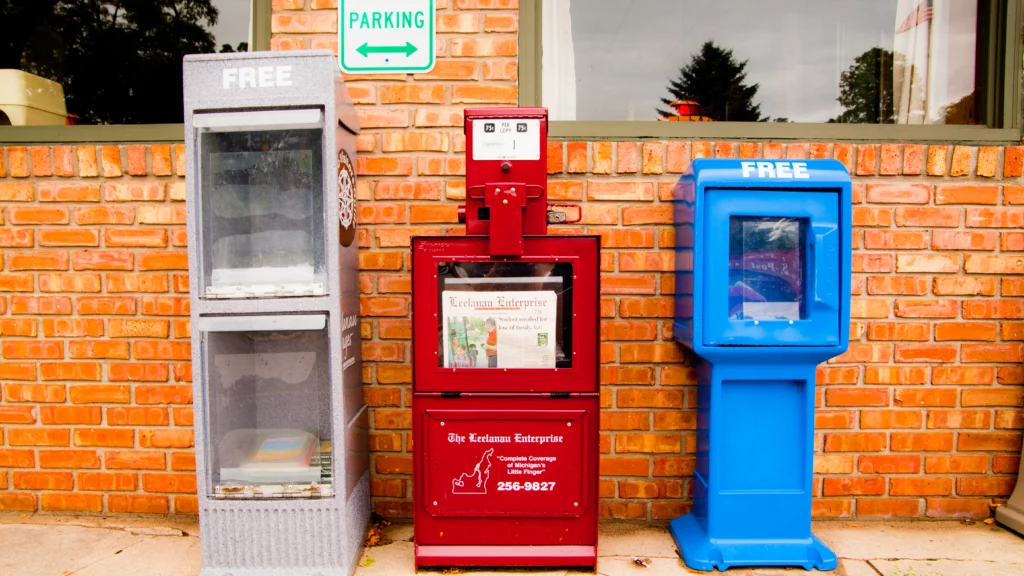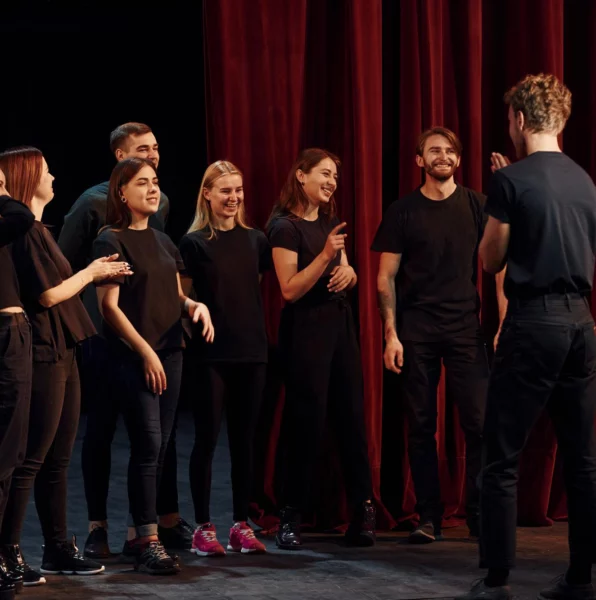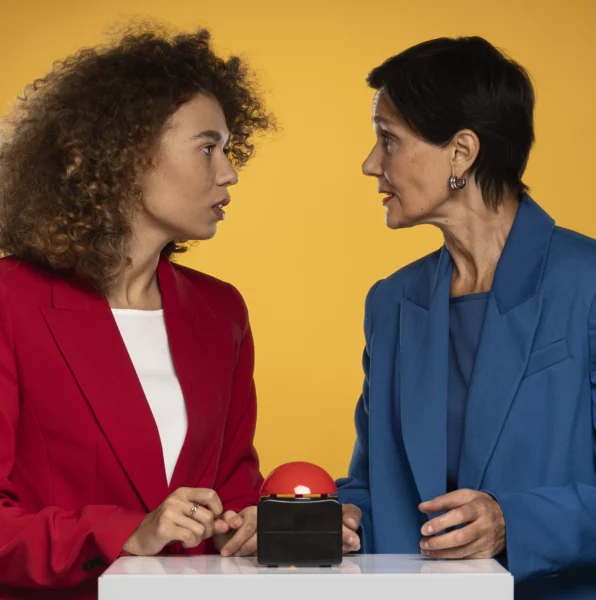Für die Kampagne #mymachineandme stellen Forschende der Max-Planck-Gesellschaft sich selbst, ihre Forschung und die dafür genutzen Maschinen vor. Wir haben einige von ihnen gefragt, wieso sie bei der Aktion mitgemacht haben und warum sie es wichtig finden, Wissenschaft zu kommunizieren.
Giulia D’Intino und Carlo Gerboni, Max-Planck-Institut für Biologische Kybernetik
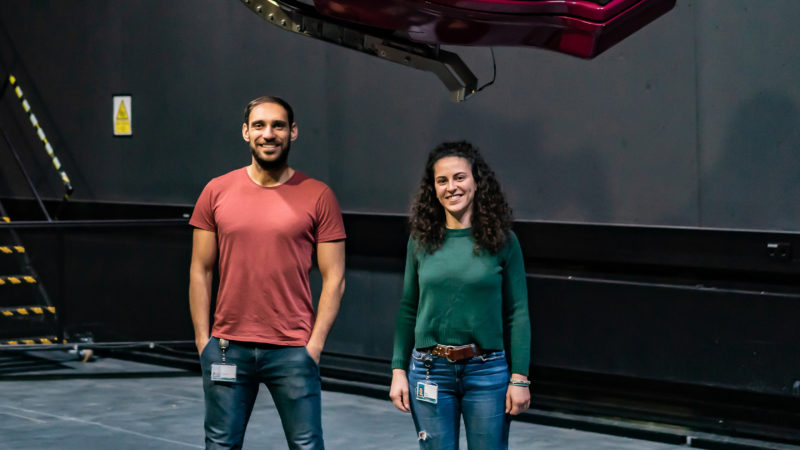
Giulia D’Intino: I participated because it is important to show how the research is done and how big MPG’s contribution to science is. It is important to communicate science to promote innovation and expand people’s knowledge.
Carlo Gerboni: I participated because I think it is nice to show the impressive technologies available at MPG and the people that work hard to get the best out of these machines. It is important to communicate science to get people close to the magnificent world of research.
Nicola Maghelli und Robert Haase, Max-Planck-Institut für molekulare Zellbiologie und Genetik
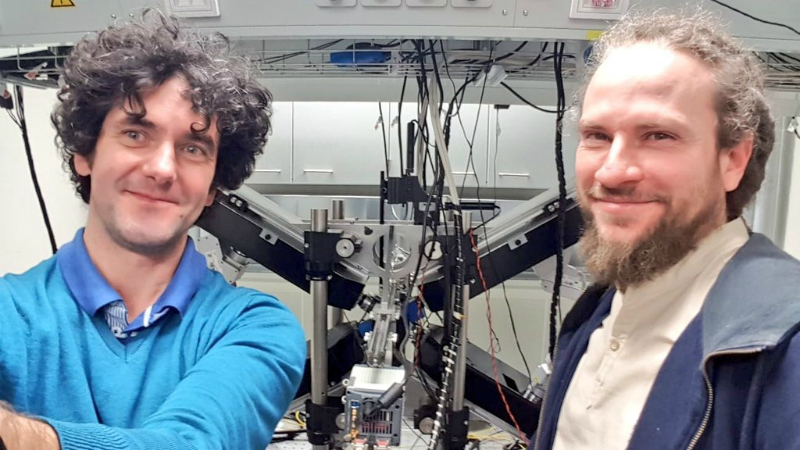
Robert Haase: We participated at #mymachineandme, because we are heavily supported by the Max Planck Society. They enable us to do research. Thus, if they call for help, I’m happy to support them. Also: Selfies in the lab are big fun! Science communication is generally important because it has two important aspects: On the one hand, we communicate with the public about what we do. In that way, the CSBD (Center for Systems Biology Dresden) gets known for being the place where Computer Science and Physics meet Biology. We also shape the image of scientists daily life at CSBD. If in the future young scientists decide to discover this particular interdisciplinary research field, they know that CSBD is the right place and that it’s fun to work at CSBD. They are actually welcome to join us on this micro-scale journey. On the other hand, science communication plays an important role in communicating within the research society: Every scientific community is spread globally and we cannot work together well by meeting just once or twice during the year on a conference. That’s the other reason why we tweet about what we are doing. This helps to get to know each other and to exchange knowledge and expertise. Since I’m on twitter, I’m approached increasingly by scientists from near and far like: “Hey Robert, I saw on twitter that you …, can you tell me more about it?” – “Yes, I can. And I’m happy to do so.”
Nicola Maghelli: Robert has been instrumental in maintaining, further developing and expanding the (really complex!) software controlling the instrument, which is at least as important as the optical and mechanical bits. It is also great to see some awesome tech being produced by CBG (Max-Planck-Institut für Molekulare Zellbiologie und Genetik) and I hope this will help our institute getting some visibility.
Sebastian Tacke, Max-Planck-Institut für Molekulare Physiologie
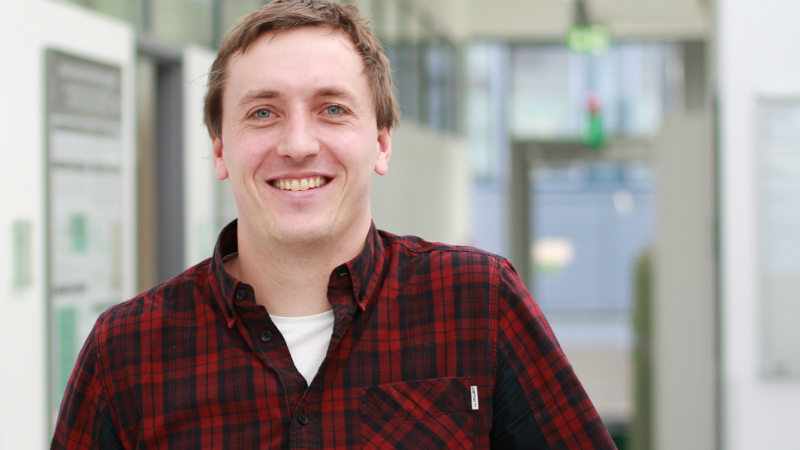
Ich habe bei der Kampagne mitgemacht, weil es eine schöne Gelegenheit ist, der Öffentlichkeit zu zeigen, wie beziehungsweise mit welchen Instrumenten wir arbeiten. Zudem haben wir die Hoffnung, mit dieser Aktion unsere Arbeit für den wissenschaftlichen Nachwuchs interessant zu machen und im Idealfall für unsere Arbeit zu begeistern. Das ist wichtig, weil wir in Zeiten von Fake News und einer zunehmenden Skepsis gegenüber der Wissenschaft, gut beraten sind, noch mehr mit der Öffentlichkeit zu kommunizieren. Es ist fatal, die Deutungshoheit Populisten oder selbst ernannten Experten zu überlassen – es ist Aufgabe der Wissenschaft, gesellschaftliche Diskurse mit Fakten zu nähren.
Philipp Miermeister, Max-Planck-Institut für biologische Kybernetik
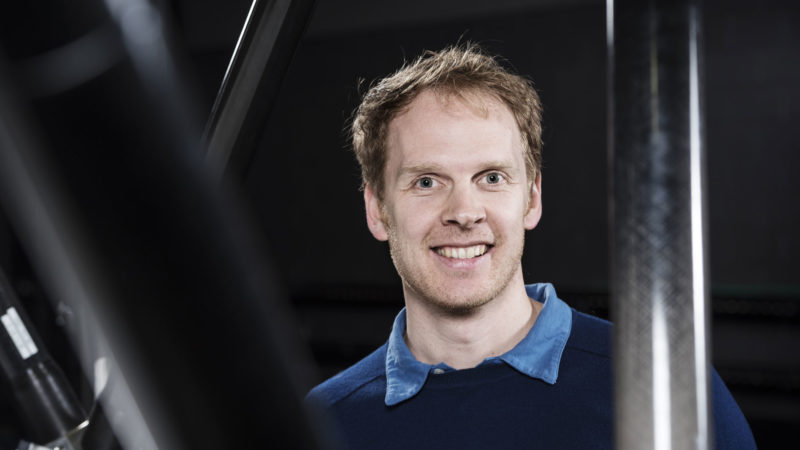
Forschungsergebnisse und verwendetes Equipment werden meistens nur auf Fachkonferenzen und in Fachzeitschriften veröffentlicht, welche die Forschungsgemeinschaft adressieren. Veröffentlichungen auf Kanälen wie Twitter ermöglichen eine breitere öffentliche Wahrnehmung und machen ein jüngeres Publikum auf die Forschungsarbeiten aufmerksam.
Wissenschaft sollte von allen als Grundlage unseres Wohlstandes und als Mittel der Wahl zur Problemlösung wahrgenommen werden. Gerade in der aktuellen Zeit, in der fehlerhafte Informationen schnell verbreitet werden, ist eine verstärkte Kommunikation wissenschaftlicher Fakten wichtig.


